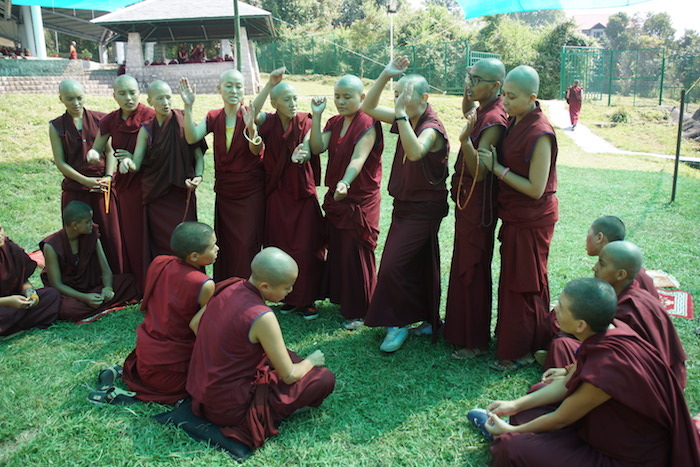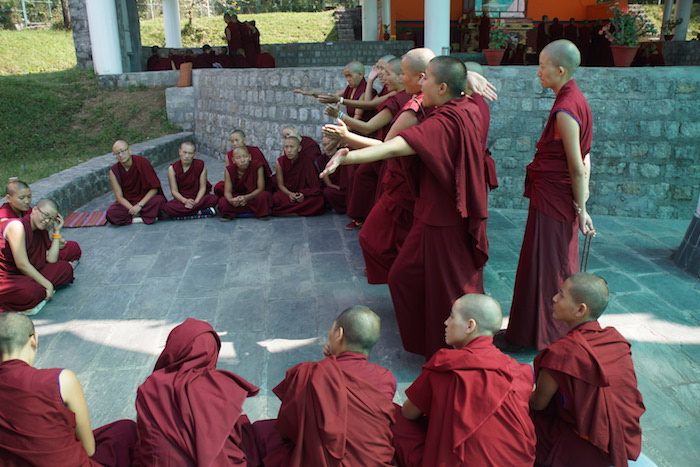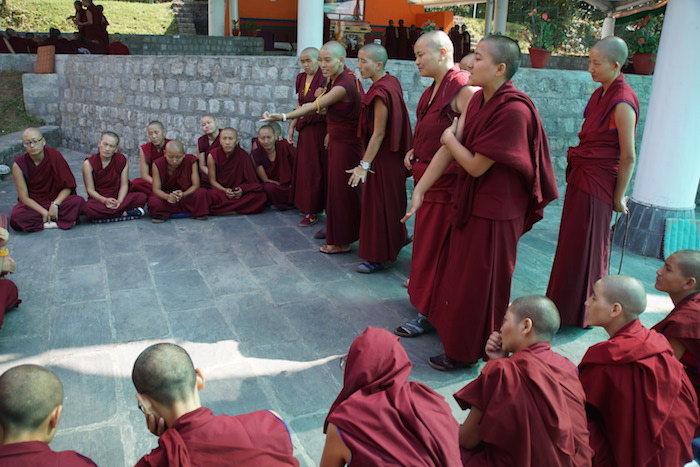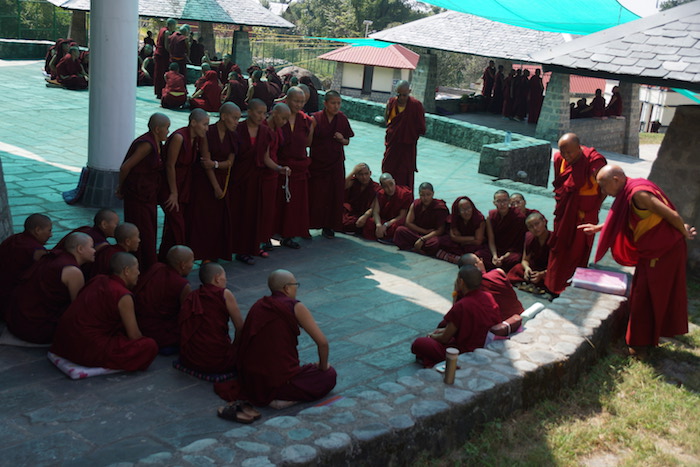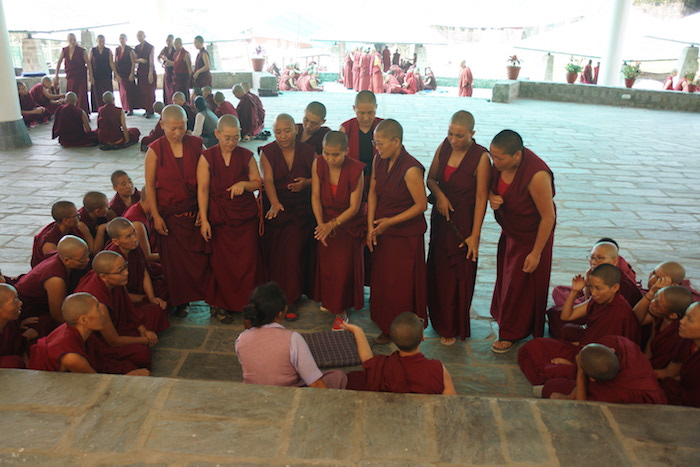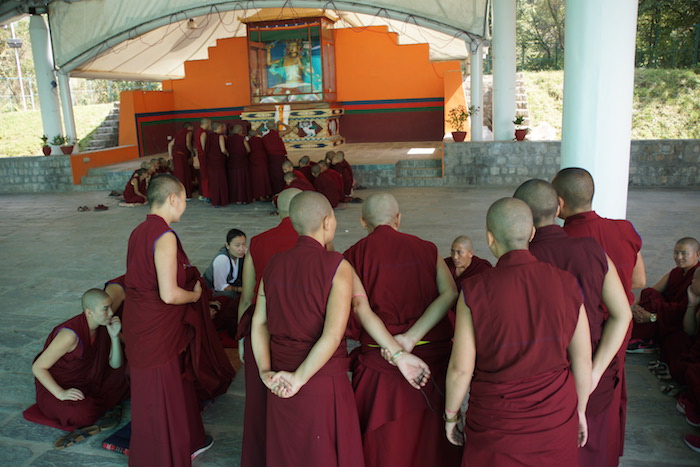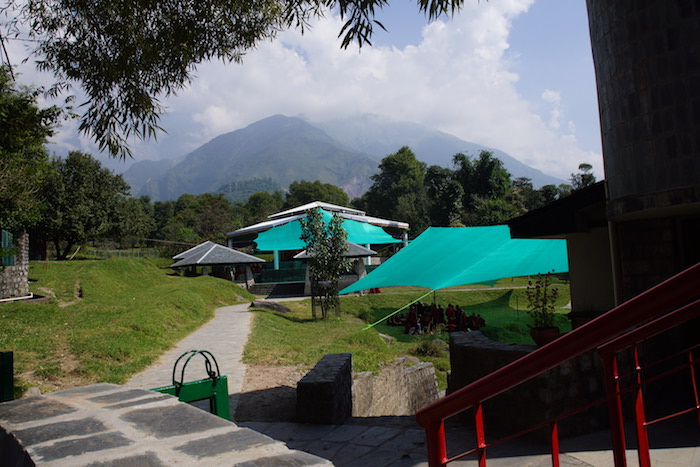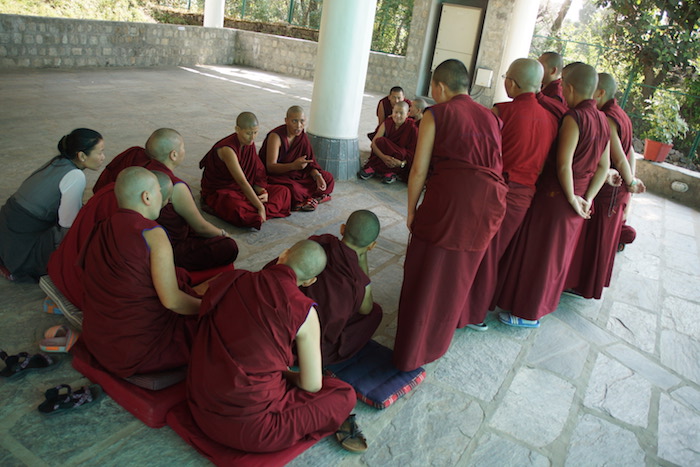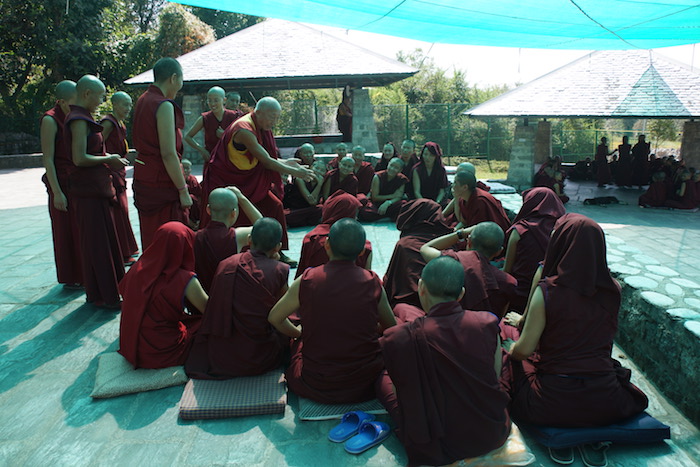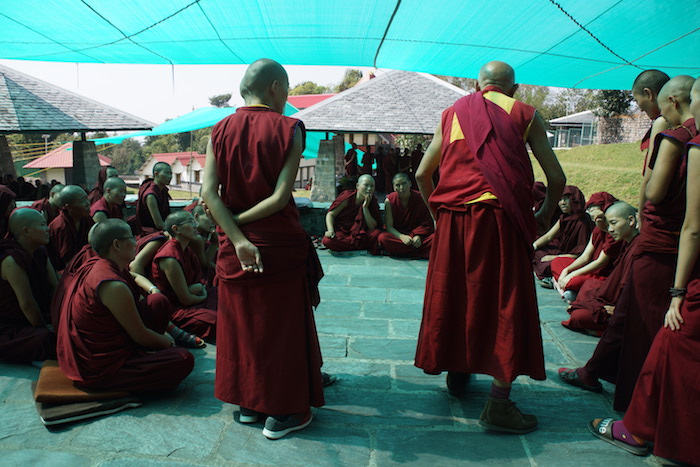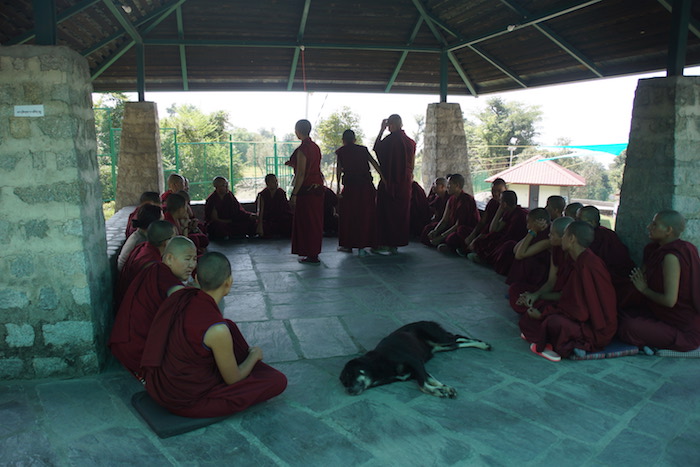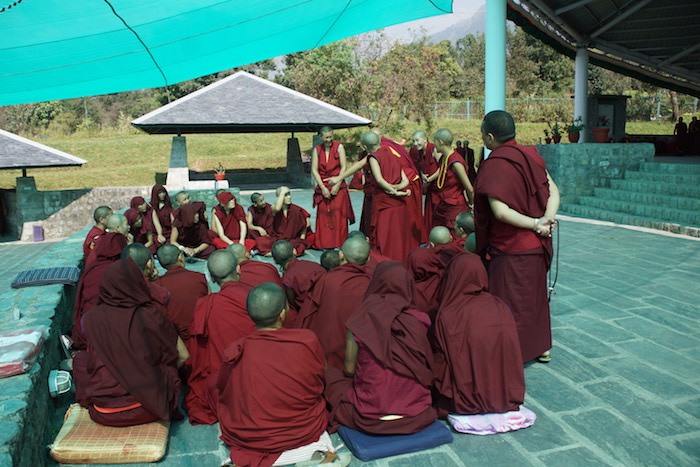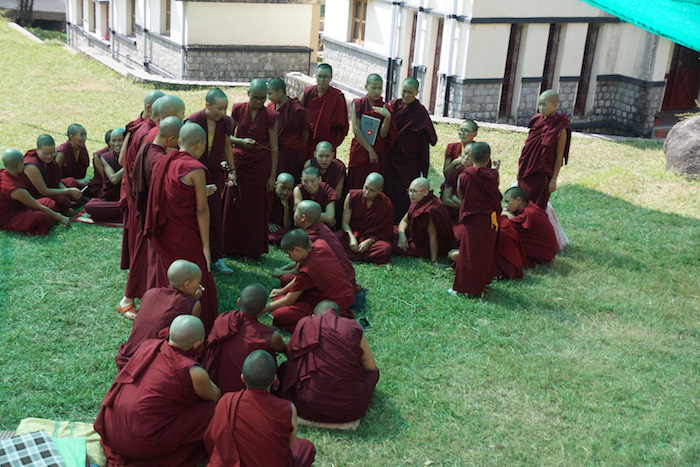The annual inter-nunnery debate, called the Jang Gonchoe, was held at Dolma Ling Nunnery and Institute from October 3 to November 2, 2017.
The nuns debated every day from 9 a.m. to 11 a.m. and again in the evening from 7 p.m. to 11 p.m. or midnight. A total of 376 nuns from 8 nunneries in India and Nepal took part this year.
Here’s a 3-minute video of the 2017 Jang Gonchoe:
The participating nuns were from:
- Dolma Ling Nunnery and Institute, the host nunnery (207 nuns took part)
- Geden Choling (27)
- Jamyang Choeling (27)
- Thukjee Choling, Nepal (27)
- Kopan Nunnery (Khachoe Gakyil Ling), Nepal (27)
- Jangchub Choling, Mundgod (27)
- Jangsem Ling, Kinnaur (19) New participant nunnery this year.
- Jampa Choling, Kinnaur (13) New participant nunnery this year.
- Nuns’ Committee members (2)
Here’s a gallery of images taken by the Nuns Media Team at Dolma Ling Nunnery.
- The annual month-long inter-nunnery debate took place from Oct 2 to Nov 3 2017.
- Nuns from 8 nunneries in India and Nepal took part.
- The Jang Gonchoe is an invaluable addition to the nuns’ studies as they interact with peers.
- The nuns debated every day from 9 am to 11 am and from 7 pm to almost midnight.
- This series of images was taken by the Nuns Media Team at Dolma Ling.
- The nuns debate tradition is still very new.
- The nuns gathered at the debate courtyard and spread out to the lawns surrounding the courtyard.
- Through debate, the nuns test and consolidate their classroom learning.
- The Jang Gonchoe was once only open to monks. The nuns’ debate event began in 1995.
- Monastic debate is of critical importance in traditional Tibetan Buddhist learning.
- This black dog stays close to the nuns and drives away any strangers.
- The Tibetan Nuns Project has fully supported the Jang Gonchoe since 1997.
- For many, the Jang Gonchoe is an essential component of working towards higher academic degrees.
Taking part in the inter-nunnery debate helps the nuns to pursue higher degrees, to become teachers, and to preserve the rich Tibetan Buddhist culture and religion. We are extremely grateful to those who support this event, and to our scholarship donors and supporters of the Jang Gonchoe Endowment Fund. A total of 168 nuns from nunneries other than Dolma Ling were supported with travel expenses.
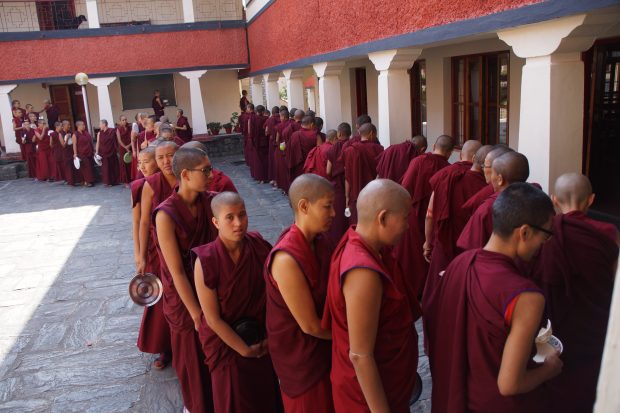
Nuns taking part in the 2017 Jang Gonchoe line up for meals at Dolma Ling Nunnery. Photo courtesy of the Nuns Media Team
Monastic debate is of critical importance in traditional Tibetan Buddhist learning. Debate is the traditional mode of study of the profound texts of the Tibetan Buddhist tradition. Opening up this opportunity to Tibetan Buddhist nuns has allowed them to progress in their education and has prepared them for higher degrees, such as the Geshema degree.
The debate tradition for nuns is still very new. While for centuries, monks have participated in an annual inter-monastery debate session, called the Jang Gonchoe, this opportunity was only opened to nuns in 1995. It is an invaluable addition to their studies as they interact with peers from a wide variety of nunneries in India and Nepal. Through debate, the nuns test and consolidate their classroom learning.
For some nuns debate is an exhilarating way to fund tune philosophical points. For some it encourages more intense study and practice. For some it helps improve grammar and linguistic skills. For others it sparks a deeper understanding of particular philosophical texts. For all nuns, it helps increase their knowledge and confidence.
Tibetan Buddhist debate is very demanding and requires daily practice. The questioner stands and chooses a point of philosophical interest from a given text. Another nun sits to await the question and to respond. If the answer is satisfactory, the questioner moves on to ask a new question. But if the questioner is not fully satisfied, the debate begins in earnest. The nuns take turns making points until the question comes to a resolution. The last resort is to consult the text, in the event that neither nun is clearly more correct.
His Holiness the Dalai Lama has spoken often about debate and the importance of the Tibetan philosophical tradition. Speaking to an audience to mark the Tibetan Nuns Project’s 30th anniversary, he took time to praise the nuns for their skills at debate. Looking at the Geshema nuns seated in front of him, His Holiness said warmly, “I remember visiting the Bhandara settlement several years ago and because I was impressed by the schoolchildren’s debate performance I asked who had taught them. I was pleased to learn it was this nun here, who told me she trained at Dolma Ling Nunnery,” pointing at one of the Geshema nuns in front of him.

